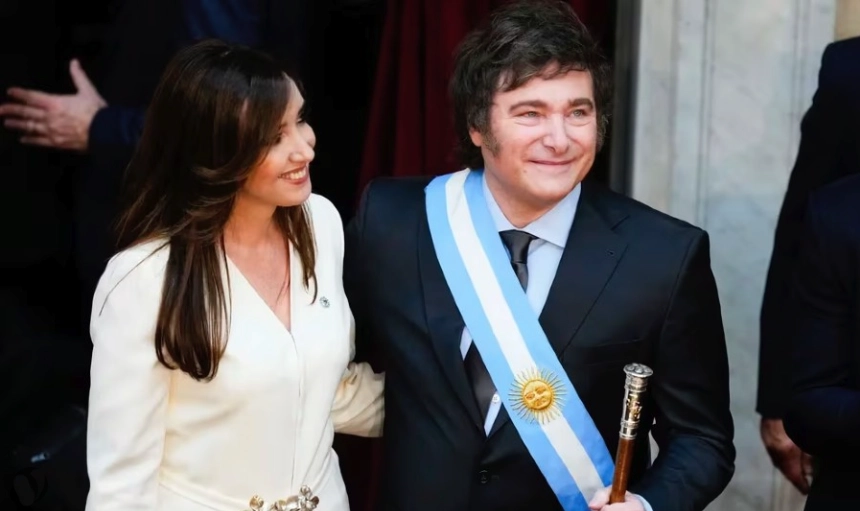Anyone has a bad day
A bad day can happen to anyone. Even the American Founding Fathers. On a bad day at the end of the 18th century, they decided to invent a hitherto unheard-of figure: the vice presidency.
A good day can also happen to anyone. Even the vice presidency. Not enough recognition has been given to Mike Pence, whose heroic rebelliousness in the face of Donald Trump stopped the coup to democracy on January 6, 2021. It was merit to the man, but also to the institution: if Trump had thought of removing Pence to continue the coup, he would not have been able to; the U.S. Constitution does not allow it. The president cannot displace the vice president; neither in the United States nor in Latin America, which copied the American vice presidency.
We said that anyone can have a bad day. The Latin American founding fathers also had one when they decided to copy the U.S. vice presidency. And they continuously have a bad day after another for two hundred years, as long as they do not eliminate an office that brings innumerable problems and meager solutions. But also in Latin America, anyone can have a good day, or almost anyone: Chile and Mexico had one, eliminated the vice presidency, and lived happily ever after, at least in that area.
Whoever does not understand this fierceness against the vice presidency, think of Brazil’s Michel Temer, El Salvador’s Óscar Ortiz, Honduras’ Ricardo Álvarez, Peru’s Omar Chehade, Ecuador’s Jorge Glas, Venezuela’s Tareck El Aissami, Paraguay’s Luis María Argaña, Bolivia’s Álvaro García Linera, Guatemala’s Gustavo Espina… To mention just a few examples.
What a debate is good for
Argentina is not far behind. The list of conflicts linked to the vice presidency is barely shorter than the list of vice presidents. Except for Víctor Martínez and Gabriela Michetti, all the other vice presidents since the return to democracy have visibly clashed with their respective presidents. Therefore, it would seem interesting to know, before voting, who the vice-presidential candidates are.
For this purpose, two vice-presidential debates were held in Argentina: one before the first round and one before the runoff. Both shared one characteristic: every topic that the human imagination is capable of imagining was debated there, except one: the vice presidency itself.
Thanks to the two most outlandish debates in the history of Argentine television, we know absolutely nothing about the vision that Victoria Villarruel, Javier Milei’s vice president, has of the position she will hold for the next four years, neither of her role within the Executive nor of her role as president of the Senate. What responsibilities will the president assign her? Will it be a discreet vice presidency or one with great prominence? What plans does she have for the Senate? Will she cut or expand the staff? Will she meet more or less frequently? Will she strengthen the Senate’s TV channel or eliminate it? What would she do in the face of conflicts with Milei? What space does loyalty occupy in her scale of values?
The oath and loyalty
According to Article 93 of the Constitution, Villarruel is sworn in “to perform with loyalty and patriotism the office of Vice President of the Nation”. The formula does not make explicit what is fundamental: loyalty to what, loyalty to whom? In principle, there are three options: the Constitution, the president, or the nation. This might seem inconsequential, but it is quite the opposite for two reasons.
First, loyalty to the nation above all else means that faced with the eventual obligation to choose between the Constitution and the nation, she would prioritize the latter. In other words, the nation (the will of the people) would be above the law. It does not sound very promising for the rule of law. Even more serious if it meant loyalty to the president over loyalty to the Constitution: it would imply that, for example, Pence would have to have been loyal to Trump over the law and give the green light to the coup to the institutions. So the first conclusion is clear: it is about loyalty to the Constitution.
But what happens when the Constitution is not at stake? Faced with a conflict similar to that of Resolution 125, which forced Vice President Julio Cobos to decide between loyalty to the President and loyalty to the nation, what would Villarruel do?
Cobos was kind enough to grant me an interview. When I asked why he did not leave office after his “no positive” vote against a project of his own government, he stated: “I had an institutional obligation with the people; with those who voted for me and those who did not; (…) I had a moral obligation with history and the duty to comply with the office and with the period, it determines”. Loyalty to the nation over loyalty to the president. Not all deputies would have made the same choice. What would Villarruel do?
Thanks to the two wackiest debates in the history of Argentine television, we do not know. It is not the sole responsibility of the organizers: the candidates had the opportunity to pose questions to each other and none took the opportunity to address the vice presidency, loyalty to the president, and their criteria in the face of a situation similar to that of Cobos.
The spring song
The “hit” of the Argentine spring of 2023 was “Por sí o por no”, by Sergio Massa. It is a good format to ask Villarruel: what would she do in Cobos’ place, would she resign or would she remain in the government? And in the case of Víctor Martínez, Alfonsín’s vice president, would he leave the government with the president, or would he stay to fulfill the succession function? And in the case of Mike Pence, would he remain loyal to the president, or would he confront him?
A rabbi once said: in the face of death, we have no answers, only questions. In the face of Villarruel’s vice presidency, it is exactly the same. With one exception: we know that Milei cannot remove her. Alberto Fernández would have liked to get rid of Cristina as much as she would have liked to get rid (politically) of Cobos. But it is not possible. The only thing left is to trust that Milei and Villarruel have one good day after another, as anyone else has.
*Translated by Janaína Ruviaro da Silva from the original in Spanish













